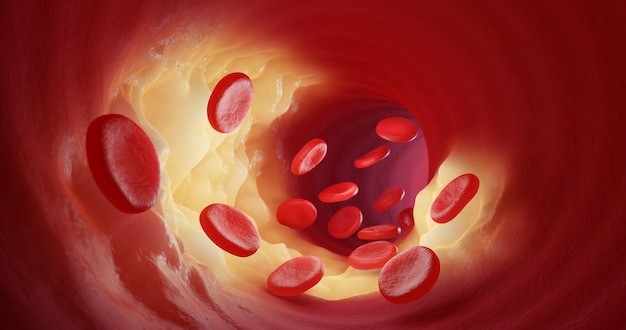
Your doctor may have advised you to take calcium supplements if you have a calcium deficiency, osteoporosis, osteopenia, osteoarthritis, dental treatments, are pregnant or nursing, have low calcium intake, or any of these conditions. Numerous bodily processes, including bone health, muscle function, blood clotting, nerve function, and hormone regulation, depend on calcium. While calcium can be gained from food sources like dairy and non-dairy products, some people may find it challenging to get all the calcium they need each day from food alone. The daily intake of Calcium for adults and elderly is between 1,000-1,200 mg. Taking more than 2,000 mg daily is not recommended for adults even with osteoporosis, as this can potentially lead to other health problems.
“Consuming too much calcium through supplements can have harmful effects on your health, including the development of kidney stones, interference with the absorption of other minerals like iron and zinc, and a possible connection between calcium supplements and the hardening of the arteries, especially when it comes to cardiovascular health”
It’s important to remember that consuming too much calcium through supplements can have harmful effects on your health, including the development of kidney stones, interference with the absorption of other minerals like iron and zinc, and a possible connection between calcium supplements and the hardening of the arteries, especially when it comes to cardiovascular health. You should be aware of the following before beginning a calcium supplement regimen.
Why Are Calcium Supplements a Concern for Heart Health?

There are numerous brands and pharmaceutical businesses that offer calcium supplements. These supplements frequently include extra minerals like magnesium and vitamin D3. The body goes through a number of steps to metabolize and use the calcium when calcium supplements are taken. For use, calcium supplements must be absorbed by the body. The kidneys are the primary organs responsible for the body’s elimination of extra calcium through urine. The ability of the body to control calcium levels aids in preventing excess accumulation or deficiency.
High amounts of circulating calcium have been proven to increase cardiovascular risk; one of the potential causes is the increasing ectopic calcification of the arteries, which may result in coronary artery disease. Calcium supplements quickly raise circulation calcium levels. On the other hand, it has been demonstrated that dietary calcium consumption can deliver calcium through delayed absorption, allowing for the maintenance of physiological calcium levels over time, a state that appears to lessen the risk of cardiovascular disease.
“High amounts of circulating calcium have been proven to increase cardiovascular risk; one of the potential causes is the increasing ectopic calcification of the arteries, which may result in coronary artery disease.”
It’s critical to take into account additional elements including age, genetics, lifestyle choices, and general cardiovascular health that could influence arterial calcification. These elements may interact with calcium consumption to affect how quickly arterial calcification forms.
(Reff. National Library of Medicine , Article byMarco B. Morelli, Gaetano Santulli,* and Jessica Gambardella)
Calcium from Food vs. Calcium Supplements

It’s critical to distinguish between calcium supplements and calcium from dietary sources. According to certain research, the source of calcium may have an impact on the likelihood of arterial calcification. The sharply elevated serum calcium levels seen after taking calcium supplements are one of the main processes raising serious concerns among some researchers. It has not been proven that calcium from food sources, like dairy products, increases the risk of arterial calcification. However, it has been suggested that using calcium supplements, especially in large amounts, may raise the risk of arterial calcification.
“The source of calcium may have an impact on the likelihood of arterial calcification. The sharply elevated serum calcium levels seen after taking calcium supplements”
Not everyone should take calcium supplements. For instance, you should refrain from taking calcium supplements if you have a medical condition called hypercalcemia that results in an excessive amount of calcium in your blood. Numerous prescription drugs, including blood pressure medications, artificial thyroid hormones, bisphosphonates, antibiotics, and calcium channel blockers, can interact with calcium supplements.
There may be a connection between heart disease and high-dose calcium supplements, though this is not conclusive.
(ref. Mayo Clinic)
Can you get all the calcium you need naturally?

Although calcium supplements may be advantageous in some circumstances, there are other ways to guarantee an appropriate intake of calcium. Here are some naturally occurring calcium-rich foods:
- Dairy Products: Dairy products such as cheese, yogurt, and milk. Select low- or no-fat varieties for healthier options.
- Nuts and Seeds: Some more non-dairy sources are green vegetables with leaves, Fox seeds, often referred to as Makhana, and almonds and walnuts, which are frequently consumed in Indian society and are good sources of calcium.
- Legumes and beans: Calcium and other necessary elements can be found in nutrient-dense meals such as beans, lentils, and chickpeas. Roasted Chana is now acceptable as a snack.
- Tofu: consumption of tofu, a flexible source of plant-based protein that also contains calcium. It can be used in many different dishes.
- Fish with Bones: Additionally, fish in cans with edible bones, such as salmon and sardines, are a fantastic source of calcium and are high in omega-3 fatty acids.
- Fortified Foods: You might also take breakfast cereals supplemented with calcium or plant-based milk like almond, soy, or oat milk. Make sure they are calcium-fortified by checking the labels.
Is there a problem if I have arterial calcification?

Due to arterial calcification’s relationship to atherosclerosis, the heart can be impacted in a number of ways. The effects of calcification on the heart include:
- Reduced blood flow: This can lead to the heart muscle receiving insufficient oxygen and nutrients, which can cause symptoms like angina (chest discomfort) and shortness of breath.
- Increased Heart Attack Risk
- Deficiency in Heart Function
- Heart Failure Risk
- Arrhythmias: The erratic electrical signaling within the heart can be disrupted by arterial calcification and the underlying atherosclerotic process, which may result in arrhythmias. These dangerously irregular heartbeats raise the risk of consequences like blood clots, strokes, and sudden cardiac arrest.
